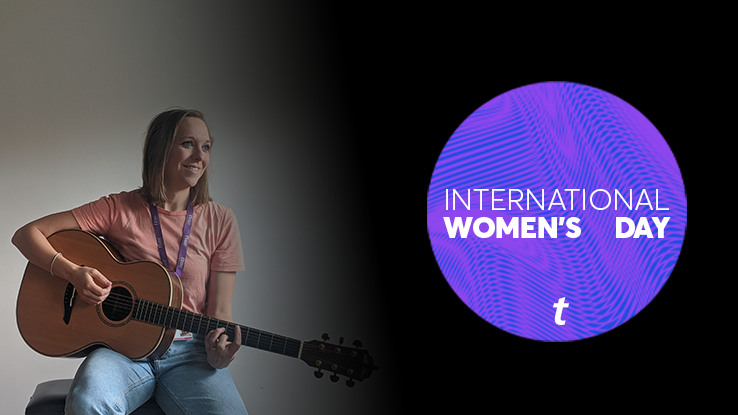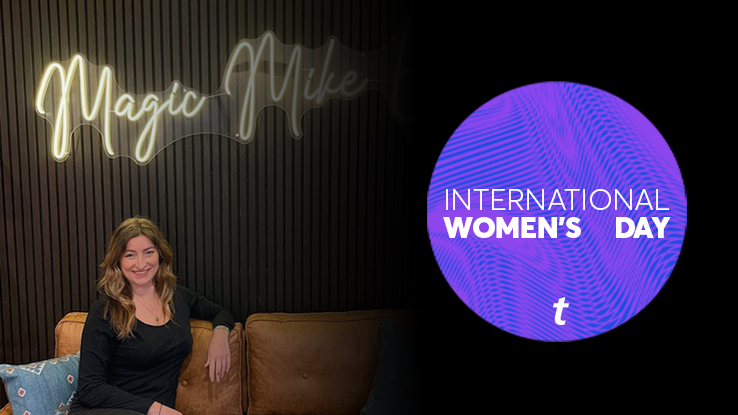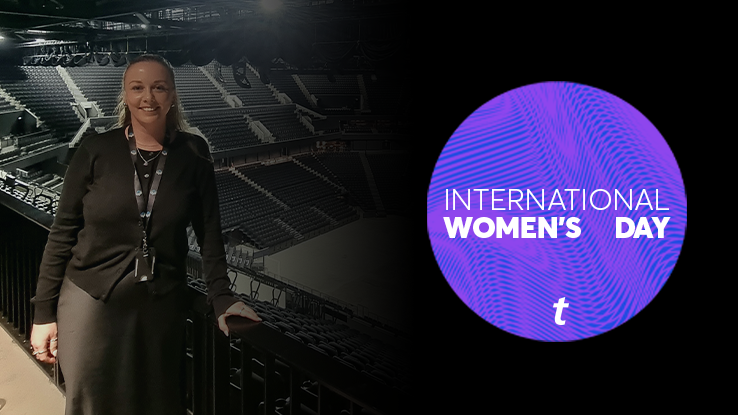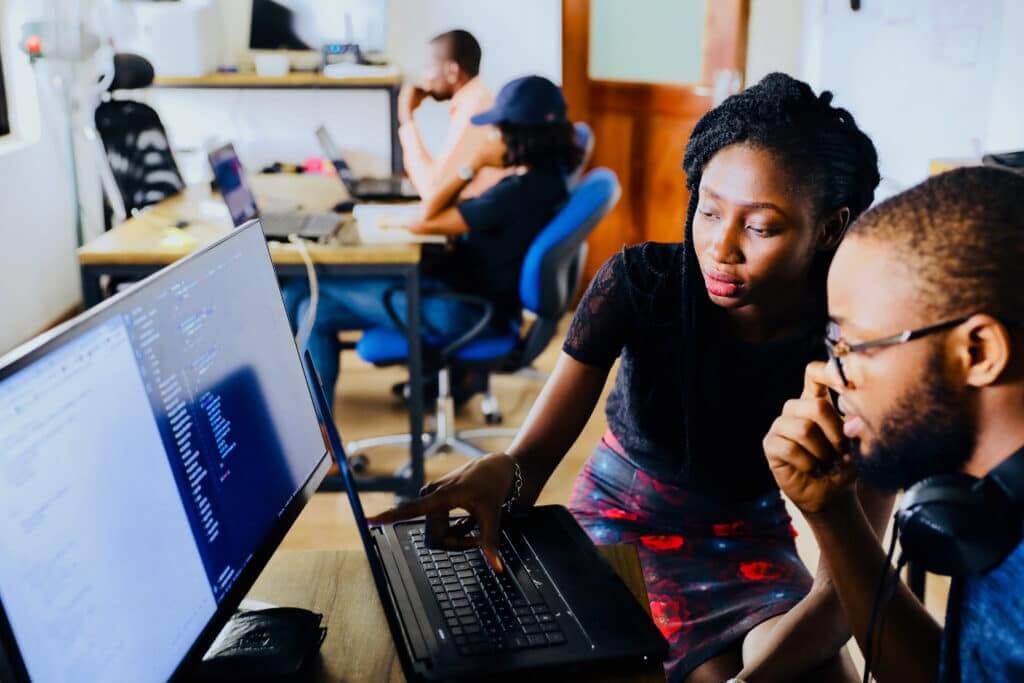Music has a unique way of reaching people, breaking down barriers, and creating moments of connection. Lou Gregg, a Nordoff and Robbins trained music therapist with 15 years in the industry, has seen firsthand how it can offer support, expression, and a sense of belonging. In this special International Women’s Day feature, she shares her journey into music therapy, the impact of her work, and her advice for women looking to follow a similar path.
What inspired you to pursue a career in music therapy?
“I always knew music could reach people in ways that other things couldn’t. I felt it at gigs, whether I was playing or an audience member and I saw it in everyday life around me. As an instrument teacher and music workshop leader, I felt like I wasn’t able to harness everything that music could offer. I also had a couple of students who had additional needs and felt certain there must be ways of helping music to meet them better than I was able to at that time. This is when I started investigating and found the Nordoff and Robbins music therapy masters course.”
How did you get started in the field of music therapy?
“You have to have a masters in music therapy to practice. I applied for the Nordoff and Robbins music therapy masters in Manchester and got a place so I trained there for 2 years and then was fortunate to get a job with them as a graduate.”
Can you share a memorable moment in your career that has had a significant impact on you?
“One of the beautiful things about my job is that I get to be with people in moments, circumstances and situations that I would never experience otherwise. Each person I’ve worked with has impacted me in some way. One moment in particular I can think of was when I was working on a mental health in-patient ward and one summer we put on a festival where patients performed to a mix of friends, family and hospital staff. At the end of the gig, we had a massive jam session where everyone got involved, playing and singing. I remember stepping back and watching and being so impacted by the fact that music doesn’t discriminate. When we were in it, playing together, nobody was thinking about who was a doctor or who had a diagnosis or who knew how to play or didn’t, we were all just people. Connecting to each other through the music we were making. We all go through different things in our lives but underneath it all, we’re all just people looking for connection.”
Can you share a memorable moment in your career where music therapy made a significant impact on someone else?
“I was working with a group of autistic teenagers and we had made a band. There was one lad, I’ll call him Theo, who was really struggling to engage with anything in class. He couldn’t sit still and found it tough to concentrate on anything for more than a few seconds and this often lead to him getting into trouble. He became the drummer in our band. Imagine the wild charm of the most energetic and charismatic drummer you’ve ever seen and you might get close to imagining Theo. To start with it was tricky, sticks flying everywhere, drums falling over but as time went on Theo really stepped into his role. Learning grooves, encouraging and pouring energy into the band. The moment came for the bands first performance and I watched as he counted the band in, joy filling his face and tears filling the eyes of some of the staff in the audience. ‘We’ve never seen Theo sit in the same seat for that long, never mind being able to play with his peers like that!’”
What advice would you give to young women interested in becoming music therapists?
“Go for it! Keep building your skills as a musician, explore different genres, sounds, techniques. Get comfortable improvising and put yourself in as many different situations as you can. Spend time with people who aren’t like you. Believe in yourself and in who you are, even if that looks different to what’s around you; not feeling self-conscious is a surprisingly big part of lots of music therapy.”
In your opinion, what qualities make an exceptional music therapist?
“Curiosity, deep and detailed listening and hopefulness. Of course there’s the base line of being a great musician but the really really good music therapists I know, listen to what is happening in the moment and then approach it with a hopeful curiosity in the way that they interact and respond.”
Who has been your biggest mentor in your career, and what were some of the most valuable lessons you learned from them?
“I honestly don’t know if I could pick just one. When I was training the tutor group was primarily made up of 4 people: Felicity North, Oksana Zharinova-Sanderson, Richard Sanderson and Simon Procter. That team made up a sort of super-tutor and seeing videos of their work, hearing about how they see the world and music and learning the craft from them was such a privilege, I couldn’t pick just one of them. I’m still learning from them all even today. They’ve taught me that things aren’t always as they seem, that there’s beauty and music in everything if you go looking for it and that it’s usually not about what you play but how you play it.“
Is there a particular female figure who inspires you, either in music therapy or beyond?
“In my role as a music therapist I am surrounded by incredible women who inspire me. I would make one shout out to Rachel Verney though. There’s a book of an interview with her called ‘Conversations’. Pretty early on in my training I was assessing whether I should quit and reading her talking about the work, people and beauty shifted something in me. I’m not sure I’d be a music therapist without that.
As a woman in the music industry I’ve always been inspired by Imogen Heap and the way she stretches boundaries and doesn’t just exist in the limited space of what is maybe expected of women in the music industry. Of course her MiMU gloves and the potential they hold for people with different physical abilities is massive. But beyond that, her commitment to fostering creativity, to using technology, to advocating for a fairer but still exciting music industry, amongst other things, I find really inspiring.”
What are some of the biggest challenges you’ve faced in your career, and how did you overcome them?
“I’m incredibly aware of the privilege I’ve experienced, of being able to have music lessons, instruments to practice on, and places to be challenged and grow. So I think honestly sometimes the biggest challenge has been just getting in my own way. I think early on as a musician I was so concerned with doing it ‘right’ and making sure I didn’t get into trouble for not learning things or whatever, especially at music college, that I could find it difficult to get into my creative flow. Now as a music therapist, our own shadows and challenges can skew the work that we do and so making sure that I’m working through that so that I can be the best channel for connection as I can be, has been a massive part of the journey and at times a real challenge.”
How do you measure success in your work, and what are some of your proudest achievements?
“I think connection is key. Whether it’s through a song I’ve written and recorded or a music therapy session I’ve done, if the person/people in front of me experience connection then it’s been successful. I think that looks like both connection to me and to themselves. The moments where it feels like we step out of time and feel the most aware of our humanness, our shared space and our connection within it. I appreciate that’s tricky to quantify though. In light of that I think my most proud moments are less about awards or technical ‘high points’ and more about that moment of eye contact, or that brave recording session with someone who never thought they could use their voice. It’s the little things.”
If you could give your younger self some advice, what would it be?
“Follow where you feel the energy is and don’t worry so much about ticking the boxes you feel like you need to tick. Give your curiosity and creativity more room to breathe with less pressure of there being a correct way to do it. If you don’t see women doing something it doesn’t mean you shouldn’t.”
How would you like to contribute to the evolution of music therapy, and what impact do you hope to leave behind as your legacy?
“I’m a big believer in exploring how technology can help music making in music therapy without it detracting from the human connection and experience. I’d love to think that once I’m done, that I’ve helped nudge the practice forward in that direction. Legacy is a big word and I’m not against it, but I think I used to have these big ideas of massive breadth of impact and influence until I realised it was stopping me from really attending to and meeting the people and moments that were here now and so I think I’m just focusing now on making this bit of the world around me, wherever I am, a kinder more connected place. So I guess maybe I would like my legacy to be that anyone who has been around me to have felt loved, energised, more creative and more like they belong in the world than they did before.”
Find out more about Nordoff and Robbins here.





